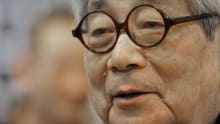Singapore extends workplace closure to end May

Singapore Prime Minister Lee Hsien Loong announced April 21 that the closure of non-essential workplaces in the city-state would be extended to June 1, four weeks longer than initially planned. Furthermore, it will be joined by increased restrictions on workplaces and tightened social distancing measures.
This move follows a huge spike in COVID-19 infections. Singapore has seen over 4,000 new cases in just the last few days, the majority traced back to dormitories housing migrant workers but a significant proportion still without identifiable links.
Lee said that the unlinked cases suggested a "pool" of undetected infections still present within the community, and the extension of social distancing measures is needed to deal with this. Furthermore, the measures may only be raised incrementally, he warned. "Most likely it will take more than a year before vaccines and treatments will become available. So we have to take things one step at a time," he said in a national address.
More restrictions, tighter social distancing measures
Minister for National Development Lawrence Wong, the head of the multi-ministerial task force dealing with the COVID-19 situation, said that the number of workplaces and services classified as "essential" will be tightened to reduce the number of people still moving around. Businesses that are consumer-facing, including the F&B sector, will come under particular scrutiny.
"When we analyzed the number of cases, many of them are either working in essential services, or have family members working in essential services," Wong said.
Social distancing measures are also being tightened to include instructions that not more than one family member should leave the house at one time, and that people should not travel beyond their own immediate neighborhood. Entry restrictions are also being imposed on venues where large numbers of people congregate, including markets.
Spotlight on the treatment of migrant workers
The sheer number of cases among Singapore's migrant worker population is heightening concerns over how these workers are housed and cared for by employers. Although the government has over the years tightened rules around migrant worker accommodation, questions and criticism have persisted, with advocacy groups pointing at cramped and unsanitary conditions which may have exacerbated the spread of COVID-19.
The burden of re-housing and treating the affected migrant workers has, at this period, fallen on the government, which is now pulling out all the stops to test all dormitory residents for infection, move them into less cramped quarters, and sanitize the dormitory premises. Minister for Manpower Josephine Teo said that around 10,000 workers have now been moved out of the dormitories, and that the government is now working with employers to close work sites and thereby reduce the amount of movement by workers.
One of the most affected sectors will be the construction industry, where all work sites have been closed as contact tracing suggests that movement through the sites has contributed significantly to the spread of cases.
Financial support to keep workers employed
To keep businesses afloat during the extended restrictions, Deputy Prime Minister and Minister for Finance Heng Swee Keat announced that a number of key financial support measures introduced earlier in April will now be extended into May. This includes the wage support scheme which subsidizes 75 percent of gross monthly wages, initially only implemented for the month of April.
"I urge our employers: do your best to retain your workers and take advantage of learning and upgrading schemes," Heng said.
















